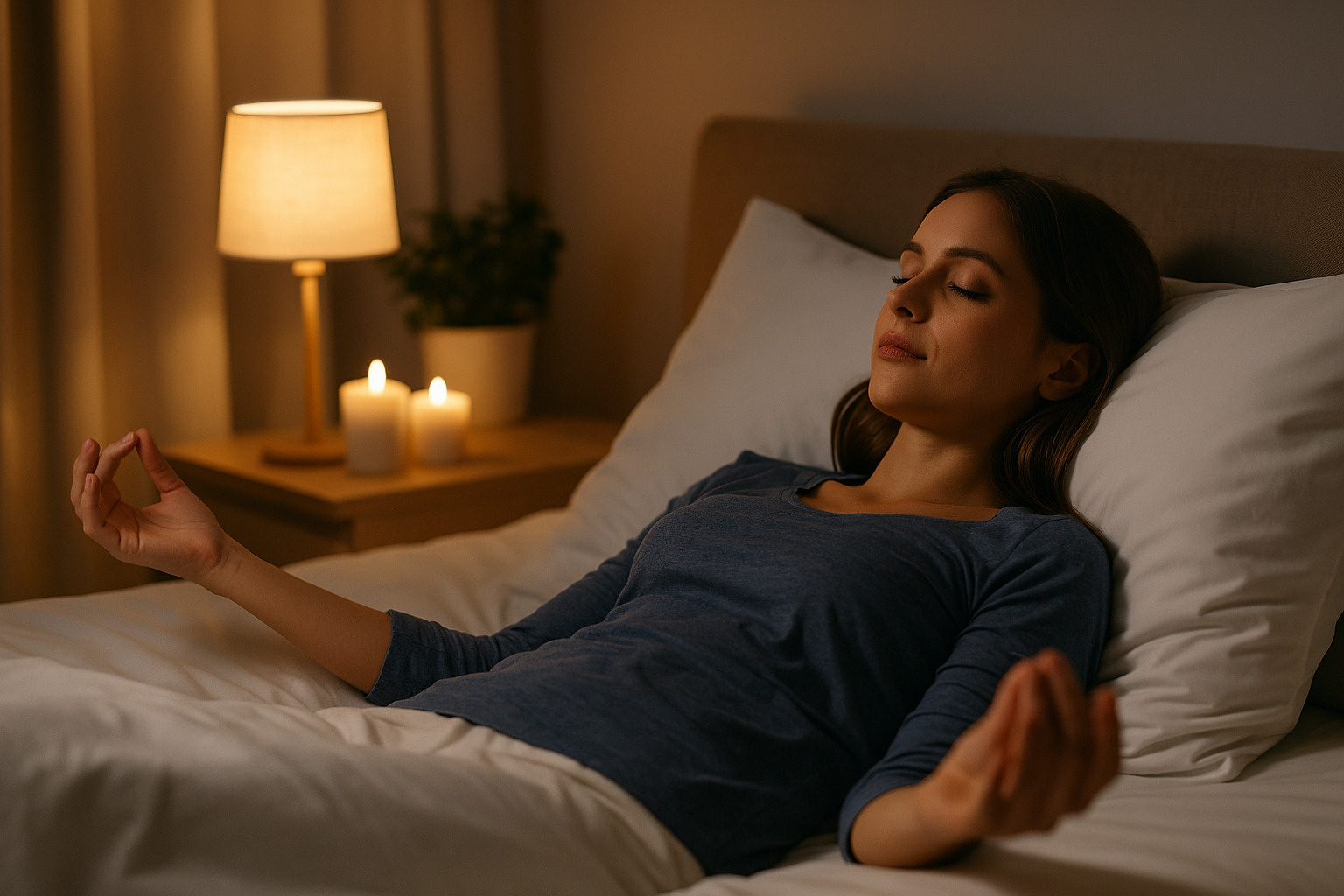The best meditations to fall asleep faster
Do you find it hard to fall asleep? Meditation can help you relax faster and sleep better—without having to sit upright in lotus position. Below you’ll find the 5 most effective meditations to drift off to dreamland calmly.
Why does meditation help with insomnia?
Meditation reduces stress, slows your heart rate, and increases the production of melatonin, the hormone that makes you feel sleepy. Research (JAMA, 2015) shows that people who practice mindfulness sleep better, experience less stress, and feel more energetic during the day.
PubMed research also confirms that meditation improves sleep quality by increasing melatonin production, especially if you meditate right before bedtime.
My tip: a body scan or Yoga Nidra personally helps me fall asleep faster when my mind is still busy.
How does meditation work in your brain at bedtime?
During meditation, your brain activity slows from fast beta waves (active thinking) to slower alpha and theta waves. These brain waves are associated with deep relaxation and the transition to sleep. At the same time, you activate the parasympathetic nervous system—the part of your nervous system responsible for rest and recovery. Your breathing calms, blood pressure drops, and the stress hormone cortisol decreases. As a result, your body gets the natural signal that it’s time to sleep.
Meditation also helps you let go of racing thoughts. By focusing on your breath or your body, you shift attention from thinking to feeling. This makes it easier to let the day go and mentally switch off—exactly what many people need for a good night’s sleep.

The 5 best meditations to fall asleep
- Body scan – Slowly scan your body from head to toe and relax each body part. Perfect for physical restlessness or tension.
- Yoga Nidra – Lying down while listening to a guided session that combines breathing and relaxation. Many people fall asleep during the practice.
- Visualization – Imagine calming scenes, such as a quiet beach or forest. You can also listen to a bedtime story via apps like Calm or Insight Timer.
- Sleep meditation – Guided meditation focused on letting go of thoughts. For example, visualize your worries drifting away on a river.
- Gratitude meditation (Metta) – Focus on positive feelings and gratitude. This soothes the mind and fosters a positive mood before bedtime.
Tips for effective sleep meditation
- Use apps such as Insight Timer, BetterSleep, or Meditation Moments.
- Lie comfortably, turn off notifications, and dim the lights.
- Meditate at the same time every evening to build a steady sleep rhythm.
- Optionally use calming background music or nature sounds to deepen relaxation.
When does sleep meditation work less well?
With chronic insomnia or prolonged stress, meditation alone may not be enough. Factors like caffeine use, blue light from screens, or irregular sleep times can also disrupt your sleep—even if you meditate. In such cases, it’s wise to improve your sleep habits: limit screen time, keep consistent bedtimes, and avoid heavy meals before bedtime.
Do you notice that you still sleep poorly or worry a lot despite meditating? Then it’s a good idea to seek advice from your GP or a sleep coach. Sometimes there’s an underlying cause such as stress, anxiety, or a sleep disorder that requires professional guidance. On About Sleep — Centers for Disease Control and Prevention (CDC) you’ll find reliable information about sleep problems.
Frequently asked questions
Which meditation is best for falling asleep?
Body scan and Yoga Nidra are the most effective because they relax both body and mind and reduce racing thoughts.
How long should you meditate before bedtime?
Ten to twenty minutes is usually sufficient. Short sessions of five minutes can already help if you practice them daily.
Does meditation really help with insomnia?
Yes. Research shows that meditation reduces stress, improves sleep quality, and shortens the time it takes to fall asleep. Mindfulness and guided meditations are especially effective.
Disclaimer: This blog is for informational purposes and does not replace medical advice. For persistent insomnia or when using supplements, always consult a doctor or pharmacist.







